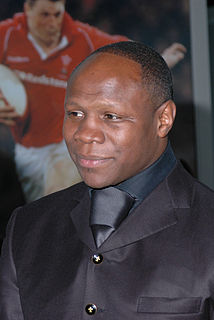A Quote by Muriel Spark
Interviews can be stimulating. It depends on the intelligence of the interviewer.
Quote Topics
Related Quotes
Interviews, when they are just simply an exercise in hearing what you want to hear, are of no interest. And many, many, if not most interviews have that character. The interviewer who comes in with a list of bullet points they're going to address one after the other. Interviews, properly considered, should be investigative. You should not know what you're going to hear. You should be surprised.
I remember when 'A League of Their Own' was coming out in '92, when I was doing interviews, it seemed like every interviewer at some point would say, 'So... would you consider this a feminist movie?' People are worried that it's a taboo thing, so I took great relish in saying, 'Yes, I would. Write that, yes.'
A reason to have computers understand natural language is that it's an extremely effective way of communicating. What I came to realize is that the success of the communication depends on the real intelligence on the part of the listener, and that there are many other ways of communicating with a computer that can be more effective, given that it doesn't have the intelligence.







































